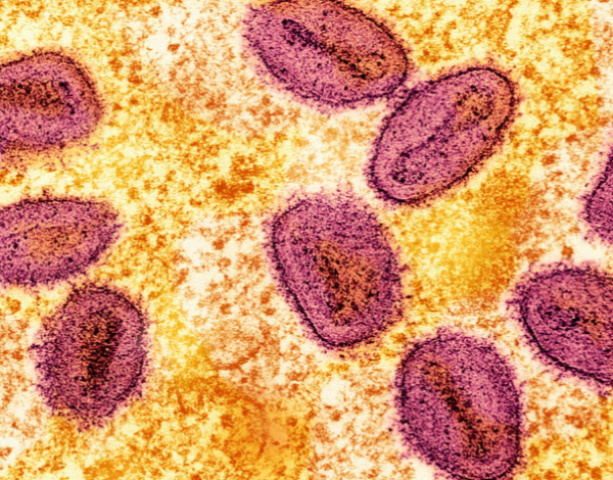Mpox spread: What you need to know to protect yourself
Pakistan and Sweden also reported first ever cases of Mpox outside Africa recently

Clade 1 is known to cause more severe infections and spreads more easily through close contact, including sexual contact.
Mpox primarily affects humans and animals and is related to the smallpox virus, though it usually causes milder symptoms such as fever, chills, and body aches. In severe cases, it can lead to death.
The virus enters the body through broken skin or airways, spreads through the blood, and causes flu-like symptoms and skin lesions. Michael Marks from the London School of Hygiene and Tropical Medicine stated that mpox does not have long-term effects on the immune system.
“Beyond the fact that all infections obviously transiently cause responses in the immune system, we don’t believe there are long-term impacts on the immune system from mpox,” Marks said.
Dr. Ngashi Ngongo, chief of staff at Africa CDC, said the virus typically causes symptoms that last “two to four weeks.”
“It’s a disease. Whether you get the severe form – then it leads to death – or you just recover [in] two to four weeks. Everything goes back to normal,” Ngongo explained.
The virus spreads through close contact with an infected person or animal. Human-to-human transmission occurs through contact with skin lesions, skin-to-skin contact, or respiratory droplets.
Marks emphasized that skin-to-skin contact is the most significant mode of transmission, as the virus remains detectable on skin lesions for about three weeks.
Human-to-animal transmission usually occurs through bites, scratches, or contact with an infected animal's wounds.
The disease causes flu-like symptoms and pus-filled lesions. While generally mild, it can be fatal in severe cases. Marks noted that most people experience “relatively mild illness,” but some may develop severe symptoms with hundreds of lesions.
People with untreated HIV, weakened immune systems, or children are at higher risk of severe disease. Children are particularly vulnerable due to their developing immune systems and higher likelihood of direct contact with others.
There is no specific treatment for mpox, though some antiviral drugs are being tested, Marks said. Vaccination is effective at reducing risk, and it is crucial to ensure an adequate vaccine supply for those most at risk in the DRC and surrounding countries.
“If we can vaccinate individuals at risk, they will be protected from infection, helping to control the epidemic,” Marks added.
A vaccine for mpox, used during the 2022 outbreak in many Western countries, remains out of reach for poorer African nations, according to Ngongo.
“There is no vaccine in Africa. Whatever is left of that vaccine is stockpiled in the West as part of their own emergency preparedness. But we have an ongoing emergency here,” he said.
Africa CDC has secured 280,000 doses through donations, but since two doses are required, only 140,000 people can be vaccinated.
Ngongo advised people to “go back to the basics of personal hygiene,” such as washing hands and avoiding contact with those who are sick. He also encouraged those displaying symptoms to seek medical attention to contain the virus.
Given the resources available in wealthier countries, scientists believe that if new outbreaks linked to Congo are identified quickly, transmissions could be stopped relatively soon. However, Marks highlighted that the “major risk” remains in central Africa, where the epidemic continues to spread.
“There are likely to be small numbers of cases exported further afield, as [in] the Swedish case, but the major risk and the focus for action needs to be on central Africa,” he said. He also urged people to act like they did during COVID-19 pandemic.


















COMMENTS
Comments are moderated and generally will be posted if they are on-topic and not abusive.
For more information, please see our Comments FAQ